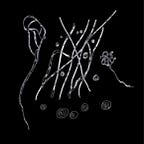The Idea of Utopia (from a Commie’s Perspective)
The idea of utopia, first coined by Sir Thomas More, in the 16th century, was always meant to be satire.
It was always intended to be expressed as a parodic reflection of society’s obsession with the unattainable.
Elegantly defined as “the desire to obtain that which cannot be obtained”.
Utopia is best illustrated by communism and socialism.
Political systems of a near perfect body of principles, corrupted by imperfect people and policies.
Communist and socialist ideology thrive on the goal of egalitarianism where the divide between rich and poor is made obsolete.
Between the gears and levers of these systems, only the middle class, the working class, exists.
However, we can intuit this to be a double-edged sword.
There is no proven method to eliminate power completely. Only to make a transition. To find and assign power to be re-possessed by an equal, if not more stringent, vessel of authority.
Much like utopia being impossible to achieve, power is impossible to destroy.
Administration of power is necessary to the order and structure of any living population. Even animals must adhere to organisation as the basic script of command for continuity.
Without power, even the most intelligent species can devolve substantially, withering away to baser instincts. Driven to anarchy. Descending to depravity. Returning to an era where common sense was lost and the moral compass was shattered beyond repair.
The face of applied communism is deformed by the manipulation of the working class from its governing body. The bodies of present-day China and Soviet Russia contort their limbs to the tune of a government that hides behind a veil of mystery.
Citizens are more familiar with its extended definition: “Fear of the Unknown”.
Perhaps, it is the sheer volume of residents, per capita, comprising the Chinese nation, that contribute to the decision, albeit arguably involuntary, of securing the indefinite continuation of the Chinese Communist Party.
Can over a billion people afford to be conscientious objectors towards a system that prevents the certainty of a dam of widespread poverty bursting, if transitioned to something as heinous and efficient as democracy?
Power does not exist in the traditional sense of Communist ruling.
On the contrary, its presence is a sinister spy. A mole burrowed too deep into the soil, nestled precisely on the demarcation line.
Utopia was never meant to assume a position in reality.
Thereby, presuming to take dystopia’s place.
Utopian worlds can only ever be conjured by the egregore of children. No amount of architectural brilliance could satisfy the Sisyphean standards of a world without trial-and-error.
In the same manner, it is a misprision to identify a dystopian universe as fantasy. The likelihood of dystopias occurring in reality is immeasurably high compared to utopias.
Especially when considering its comparative prevalence in the media as a metric.
Dystopias yield greater popularity in film representation because they evoke a sense of discomforting proximity.
A blurred line merges the neighbouring vicinity of utopias and dystopias because they are alike in the same ways that they are different.
Namely, in sharing a certain air of oppression.
The “perfect” world of utopia is only perfect in its cosmetic uniformity of thought, speech and behaviour.
One would venture to say that the single defining feature of utopia is homogeneity.
A factor that should seem paradoxical.
And is.
Both utopias and dystopias are characterised by the oppressive nature of uniformity where individuality is compromised.
The difference between these two is that a utopia is contradictory in this regard. A perfect world should prioritise the individual over the collective.
Not in a way that satisfies selfish aspirations, but instead delivering altruism to the self and its desire for personal liberties.
Freedom to be at variance in opinion, to speak on the sensitive and offensive without fear of harm or rejection, to move without lingering eyes of constant surveillance.
A utopia depicts these things and more in opposition.
A clinical spotlight on the illusion of power in the cheery baring of ivories and spotless skin.
A utopia, i.e., a world designed to benefit the working class, works hard to ensure that perfection is living to work over working to live.
